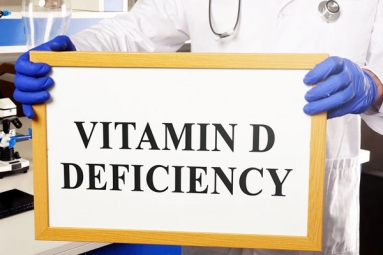
(Image source from: Canva.com)
Vitamin D, commonly known as the sunshine vitamin, is very important for your health. It plays a key role in your overall health, especially in keeping your bones strong. Vitamin D helps the body take in calcium, which is necessary for creating and preserving sturdy bones and teeth. If there isn’t enough vitamin D, bones can become weak, fragile, or misshapen, increasing the likelihood of diseases like rickets in kids or osteoporosis in adults. In addition to bone health, vitamin D helps maintain a robust immune system. Some research shows a strong connection between vitamin D and mental health, suggesting that having enough can enhance mood and brain performance. This crucial nutrient is important for many essential body functions, and its importance is significant. However, many people don’t get enough vitamin D, and it often goes unnoticed for a long time. Experts have outlined the initial signs and symptoms of not having enough vitamin D:
Vitamin D Deficiency: Signs and Symptoms:
“Vitamin D deficiency usually goes unnoticed. You might have low vitamin D for years without seeing any clear signs,” experts stated in the video. It often reveals itself through tiredness, feeling down, and getting sick often. Other signs of low vitamin D levels include:
Pain in the back and bones
Slow healing of wounds
Loss of hair
Muscle ache
Feelings of anxiety and sadness
Gaining weight.
Ways to increase vitamin D levels: Your body makes vitamin D when it receives sunlight. The best way to get it naturally is by being in the midday sun for 10 to 30 minutes with your arms and legs uncovered, which can produce 1000-2000 IU of vitamin D.
What foods can help?: Fatty fish such as salmon, egg yolks, mushrooms, and fortified foods are some dietary sources of vitamin D. However, experts pointed out that “you would need to eat a lot of salmon, tuna, eggs, or mushrooms just to reach the amount of vitamin D your skin generates in a quick 15 minutes of sunshine.” Sunlight serves as the best source of vitamin D, while food sources are quite rare.
If you have a deficiency, taking supplements can help raise your levels effectively. However, you should use supplements with guidance from a healthcare provider. Taking too much vitamin D can cause harm. Excessive vitamin D can lead to kidney issues. The ideal amount is 600 to 800 IU daily for most adults, but it’s important to consult with your doctor first. Vitamin D is vital for a healthy body, a well-functioning immune system, and a sound mind. Ensuring you have sufficient levels is a simple yet effective way to promote long-term health. It acts not just as a vitamin, but more like a hormone in your body, influencing over 200 genes.









